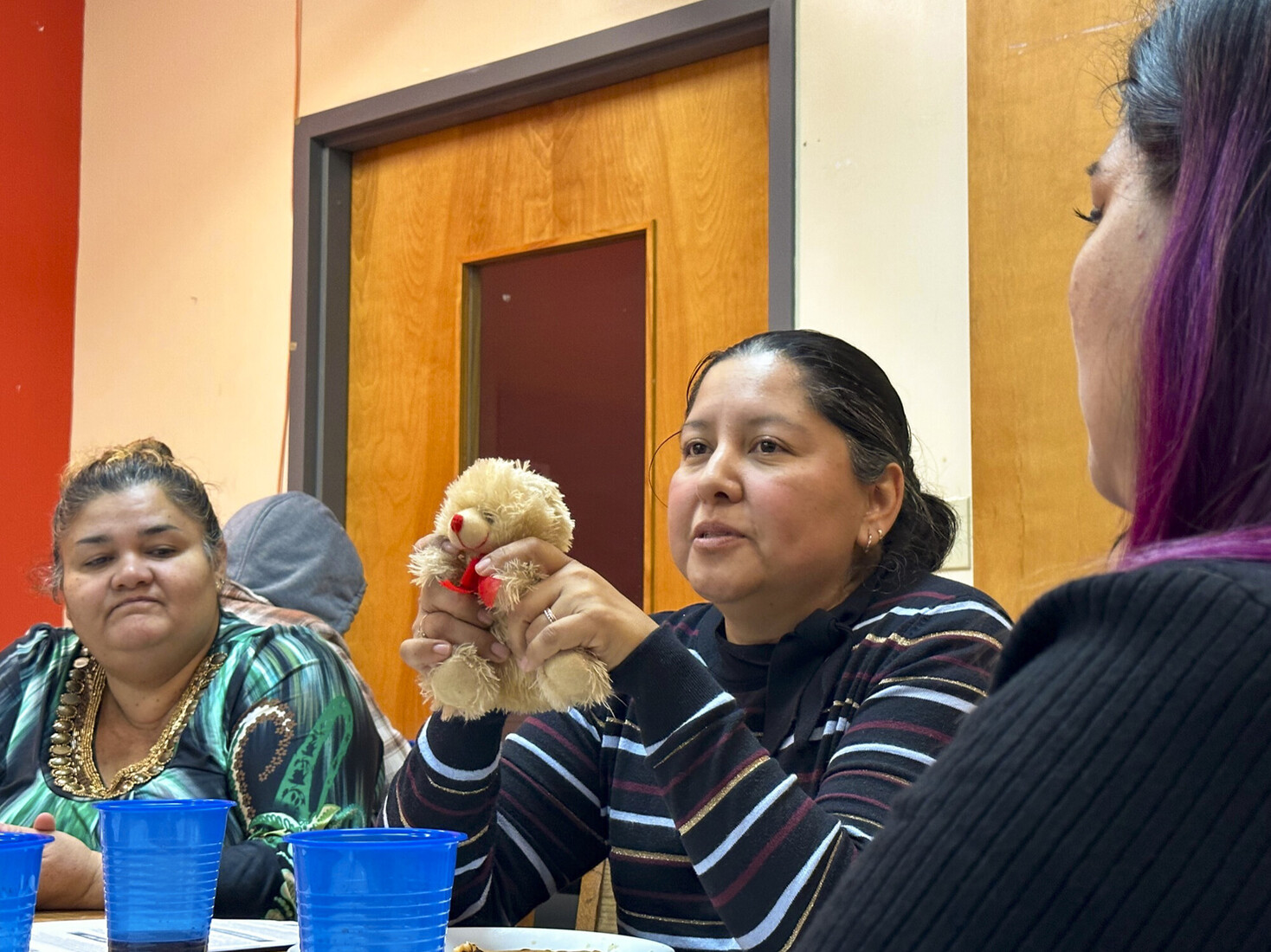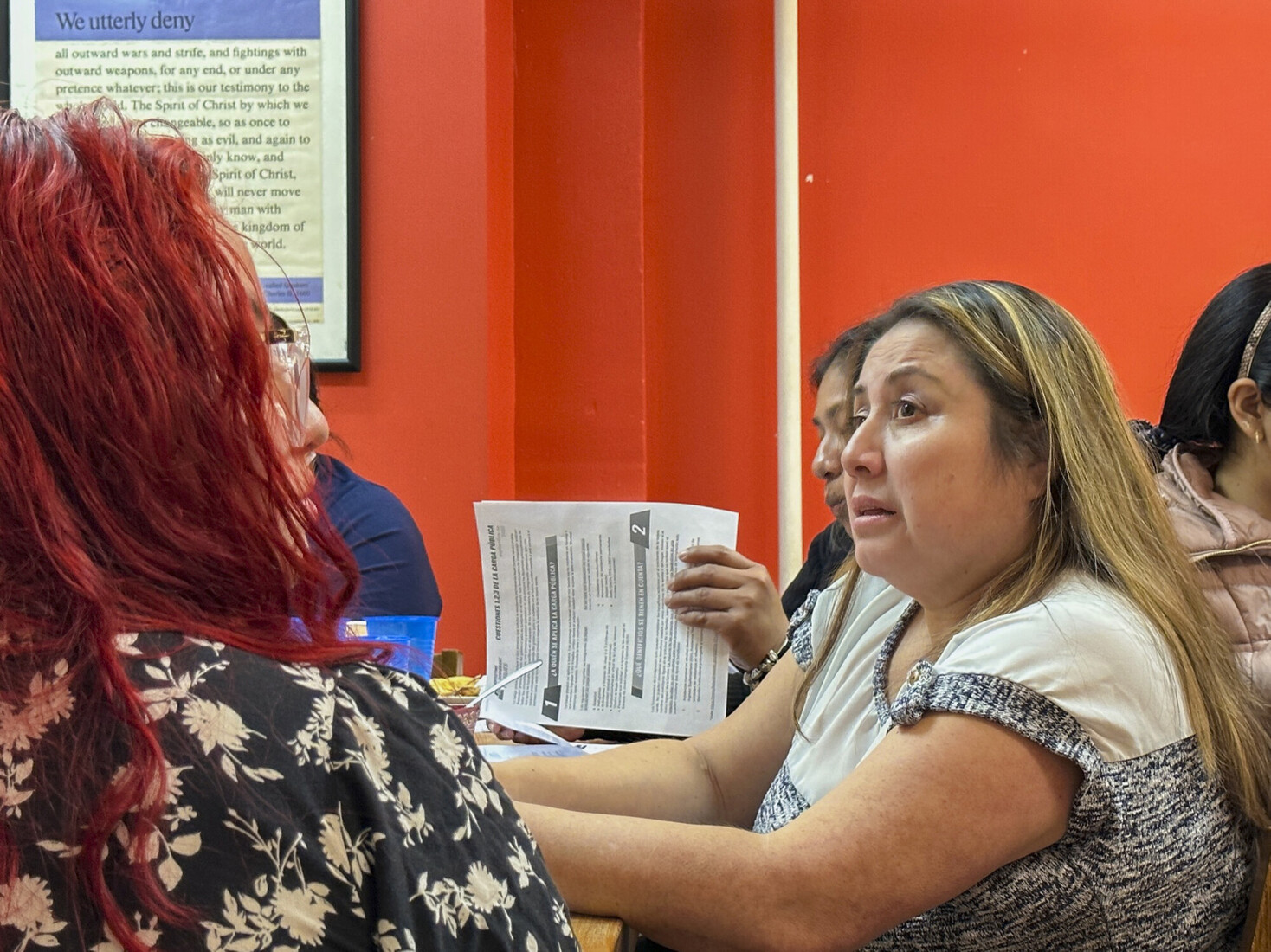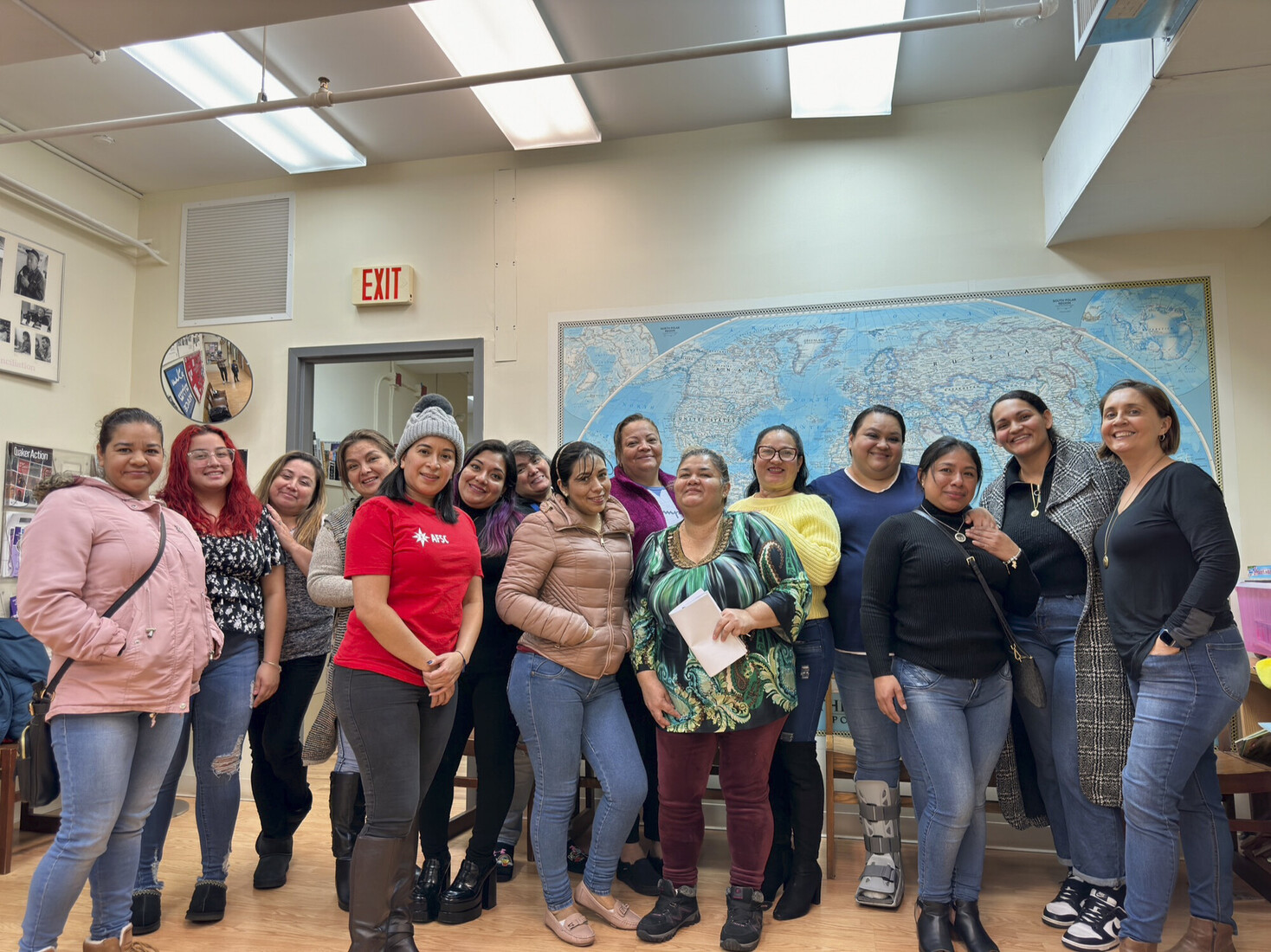
A recent gathering of the Women's Group in Newark, NJ. Photo: Alethia Gomez
On a recent Saturday afternoon, a group of about 15 women gathered at AFSC’s office in Newark, New Jersey. They hug and greet each other as friends. Several have brought food—including pupusas, flan, and homemade pastries—to share as they talk about their lives and learn from one another.
They know that for a few hours, the gathering will be a warm, relaxing space where each of them can feel safe and welcome. That has not always been the case in their everyday lives.
All the women are immigrants who moved to the United States in search of a better life. Each of their stories is different, but they have much in common. Most are survivors of domestic violence or other abuse. Many are mothers who’ve worked tirelessly to keep their families together. Many face daunting challenges in trying to earn enough money to support themselves and their loved ones.
Each of these women turned to AFSC for legal assistance with their immigration cases. They are learning how to advocate with AFSC for more just, humane immigration policies. Now they are part of our Women’s Group, where they can join with others who know firsthand what they’re going through.

Photo: Alethia Gomez
As part of the legal services team at AFSC for the past 12 years, I have worked closely with many women who are survivors of violence. It has been a dream of ours to create a Women’s Group to provide a space where these women can meet, share their experiences, exchange knowledge, and lift each other up. That finally happened when we launched this group last year.
Our Women’s Group includes women like Bibiana. In 2004, at the of 21, Bibiana left her home in Puebla, Mexico for the U.S., hoping to earn enough money to support her parents and young siblings. She worked hard. At one point, she had two-full time jobs—at a fast-food restaurant and an overnight shift at a bread company—often sleeping only three hours a day. With the income she made, Bibiana was able to put her younger brother through technical school, afford nursing classes for her sister, and pay for medical care for her father.
But everything changed for Bibiana in 2011, when her partner became abusive. Bibiana, who was in her third trimester of pregnancy at the time, left her partner. She reported the abuse to authorities and was referred to AFSC for legal assistance. It was the first time she’d heard of a “U visa,” which provides immigration relief to certain victims of crimes.
Today, Bibiana is grateful to be where she is in life. Last year, she became eligible for a green card, and AFSC helped her apply for her lawful permanent resident status. Bibiana also has a stable job that pays enough to support her herself and daughter—now 10 years old—while still helping her family back in Mexico.
“For me, the Women’s Group has been a beautiful experience,” she says. “People are kind. You can listen to other people’s problems, share your own, and not feel alone. It feels good to be there. There is strength in being part of a group.”

Photo: Alethia Gomez
At each meeting, women also hear from AFSC staff like organizers Glendy Tsitouris and Itzel Hernandez about issues like protecting Temporary Protected Status (TPS) and ending immigrant detention and deportation—and how they can get involved in advocacy efforts. In addition, they learn about resources that can help them and other people in their community.
In a recent meeting, Bibiana learned that New Jersey passed legislation that provides universal health care to all children, regardless of immigration status. But many immigrant families still had not heard about the change. Since then, Bibiana has shared that information with many people, knowing that a lot of parents are struggling to afford medical care for their families.
Other members of the group have also been active with AFSC in advocating for TPS, which provides protection from deportation to people from certain countries afflicted by war, natural disaster, or other dangerous conditions. Bibiana appreciates that she can pass on those updates about TPS with her co-workers, several of whom are TPS holders. She has encouraged them to take part in protests to protect TPS, and informed them of AFSC trips to Washington, D.C. with TPS holders and their families to lobby members of Congress.
“It is empowering to have that knowledge and to be able to share it with others in my community,” Bibiana says. “It means a lot that know there are actions they can take.”
The support of the Women’s Group extends beyond their monthly meetings. Members also maintain a WhatsApp group chat where they stay in touch. They reach out when someone needs something (like helping getting baby clothes), invite each other to church gatherings, and let each other know about resources available in the community.
For newer members to the group, it can be powerful to meet other survivors who have experience navigating the immigration system in the U.S.—and are thriving today. They meet people who have been in their shoes and who they can call on when they need to.
“Many of us have common issues,” Bibiana says. “It has meant a lot to me able to share what I went through, and now that I’m on the side, to connect with those are just starting the process.”
